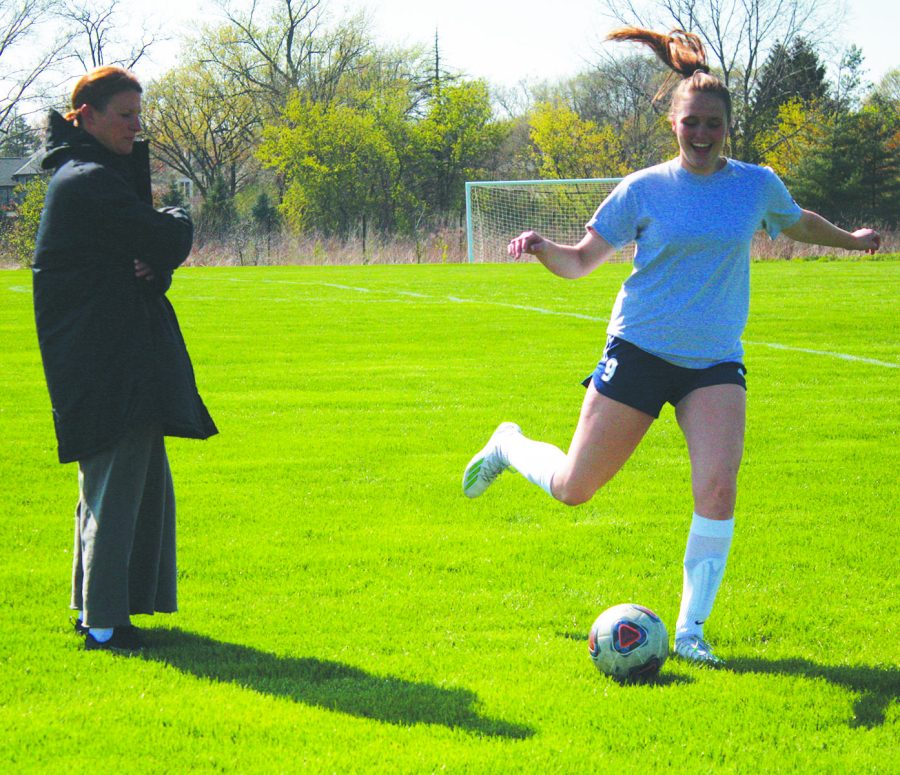Support female coaches in sports
If you know me, you probably know I love to play sports. I am a 12-season athlete and had a total of 14 coaches in high school. However, it was not until this year when Meghan Bargar, assistant girls soccer coach, walked onto the turf on the first day of tryouts that I realized a trend consistent throughout my high school athletic experiences: I only ever had two female coaches. At the varsity level, coach Bargar would be my first.
Shocked by this realization, I looked at other Glenbrook North sports and saw a disproportionate number of male coaches to female coaches. Of the 31 varsity sports, 23 have male head coaches.
The disparity between male and female coaches also applies to postsecondary institutions. According to the U. S. Department of Education, of the 27,243 head coaches reported in 2021, 75.6 percent were men. In this same survey, of 56,601 assistant coaches 71.7 percent were men. A study was not conducted on this topic for high schools.
These numbers may be shocking for some, but for me, I was not surprised.
As my soccer season has progressed, I find myself deeply valuing the experience of having a female coach. Coach Bargar offers unique perspectives on in-game situations and does not hesitate to confront poor play. She occasionally plays in practice with us and always makes sure players are competitive with each other. While I have nothing but great things to say about the male coaches I have had at GBN, working with a woman shows me that girls can also become leaders in athletic areas.
It is important to have role models in every aspect of life. Watching other women thrive in fields I am passionate about shows me that it is possibletobe successful in pursuing those interests. Since Title IX was signed into law in 1972, prohibiting sex-based discrimination in any school or education program that receives funding from the federal government, female athletes like me have had athletic role models they can look up to.
However, this increased representation of women in sports is bittersweet. Girls nowadays are given many opportunities to excel in athletics, but the low number of female coaches shows how women may not always be encouraged to pursue careers in coaching.
Coaching jobs are often available to men and women. But the fact that there are usually more men than women in coaching positions may discourage potential female coaches from going out for these positions.
When women pursue opportunities to coach, some are treated with disrespect. I have witnessed players discount the advice of female coaches or doubt their female coaches’ athletic abilities more often than they do male coaches. Athletes need to respect female coaches as much as their male counterparts and make women feel welcome entering a career in coaching. It is the responsibility of athletes and society as a whole to stop reinforcing the stereotype that women do not have as advanced of an “athletic IQ” as men.
I am happy to report having a female soccer coach has been an illuminating, extremely positive experience. I have a role model I feel comfortable talking to about anything, who at the same time is a very experienced, motivational coach.
We have created a culture that supports female athletes. But now, it is time to create a culture that supports female coaches.


